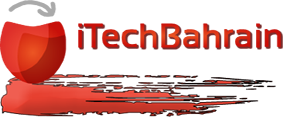The battle lines for generative AI are being drawn. With all companies gunning for the top spot, the question arises, will there be one clear winner or does this just open more avenues of supremacy?

On November 30th, 2022, the digital landscape and global discourse underwent a seismic shift. Enter OpenAI’s ChatGPT, a new arrival in the world of technology. Distinguished from its predecessors, this chatbot harnessed the power of large language models (LLMs) to facilitate conversations tailored precisely to users’ specifications regarding format, length, and detail—a technological breakthrough made accessible to the public.
Its intuitive conversational interface quickly captured the imagination of users across diverse spheres. From casual exchanges among friends crafting narratives to educators fielding generated responses to academic inquiries, and even programmers leveraging its capabilities to tackle coding challenges, ChatGPT’s uncanny ability to mimic human dialogue propelled it to overnight stardom.
Tangible applications for this AI-driven chatbot emerged, reshaping enterprise dynamics reminiscent of the tech upheavals of the 1990s, albeit in the context of the generative AI race. Eager contenders clamored for dominance, signaling a change in basic assumptions in industries and enterprises.
The 2023 innovation to 2024 execution
By 2023, a deluge of chatbots inundated the market—Google’s Bard (now Gemini), Meta AI, Elon Musk’s Grok, Samsung’s Gaus, each vying for supremacy. Fast forward to 2024, and the battleground shifts to industries and enterprises, with heavyweight contenders unveiling their arsenals.
Google debuts Gemini as a standalone Android App, while OpenAI teases ChatGPT 5 with enhanced features. Amazon stealthily introduces its AI chatbot, Nvidia unveils Chat with RXT, and OpenAI’s Bret Taylor launches Sierra. Meanwhile, PayPal-backed Rasa secures $30 million in Series C funding to bolster its enterprise-focused conversational AI product. Not to mention, OpenAI taking this a step further with Sora.
Apple, ever the innovator, looms on the horizon with plans for an AI product slated for release by year’s end. The intensifying chatbot skirmishes mirror the breakneck advancements in LLMs, each iteration heralding heightened accuracy and requisite guardrails.
“Today, it is a mega trend that everyone wants to catch onto, it is the same fight as an operating system for a major market share. But on the other hand, it is an innovative idea to have multiple generative AI platforms. A monopoly of one platform can be dangerous as it can push a particular agenda and democratisation is important. Diversity in that sense makes a lot of difference,” added Mario M Veljovic, General Manager VAD Technologies.
Democratisation in fact too was one of the main concerns for NVIDIA to get into the space of generative AI. Jensen Huang, CEO Nvidia, also added that the company’s GPUs will make AI accessible across multiple platforms.
However, beneath the veneer of innovation lies a sobering question: how many AI subscriptions can consumers truly accommodate? Whether dubbed an “assistant,” a “copilot,” or an AI with a “rebellious streak,” as Grok touts itself, the fundamental functionalities of these bots remain indistinguishable. Just as the proliferation of streaming services necessitates discernment, envisioning a scenario where multiple chatbots coexist on one’s payroll strains credulity.
“It currently is too early to comment on who will be the winner, and it doesn’t seem like a winner takes all market now. We still have a long way to go in terms of understanding the complete potential of AI,” said Hassan Awada, Associate Managing Director, Kroll, Abu Dhabi.
Yet, amidst the fervor of chatbot wars, pricing emerges as a pivotal factor. Google’s Gemini commands $20 a month for its premium version, seamlessly integrating AI across its productivity suite. Microsoft’s AI CoPilot fetches $30 for its inclusion in productivity software. ChatGPT by OpenAI follows suit at $20 a month, while Musk’s X offers Grok chatbot at a competitive $16 per month.
Beyond the realm of chatbots lies a broader horizon for AI’s growing language models, promising unexpected applications as the industry matures.
 iTechBahrain Information Technology Digital Marketing Web & Mobile Development Services
iTechBahrain Information Technology Digital Marketing Web & Mobile Development Services